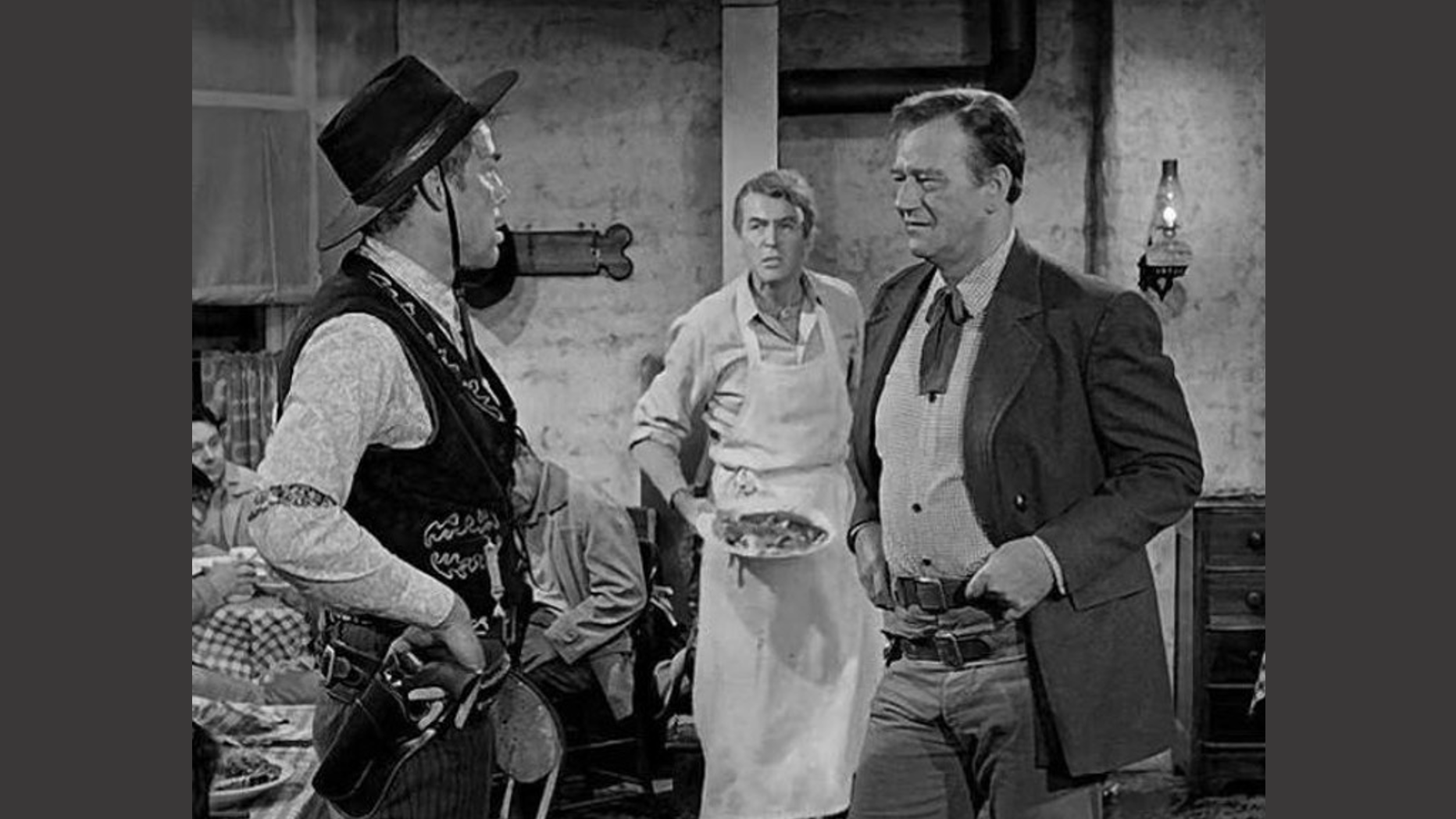

By Carmine Cicalese
Photo above: Tom Doniphon (John Wayne, on viewer’s right) confronts Liberty Valance (Lee Marvin, left) while future senator Ransom Stoddard (Jimmy Stewart, center) observes the dispute.
Photo credit: culturedarm.com
I love a good western movie. Black and white favorites? The Man Who Shot Liberty Valance and High Noon.
Colorized? Shane, The Magnificent Seven, Unforgiven.
I love the American western frontier between the Missouri River and the Sierra-Cascade Mountain ranges. Severe. Awesome. Desolate. Inspiring. (For more, visit our Death Valley blog).
Favorite Western audience and Western democracy? The U.S. of course.
Maybe.
Wait, what am I saying? Better yet, why am I asking?
Curious information professionals, follow me on this…
There I was. 2007. The Surge in Iraq. Still serving on active duty in the U.S. Army. During a particular meeting, I asked a Public Affairs colleague, whom I considered a great professional and a fine person, if we could get Iraqi or Middle Eastern coverage of an event. He responded, “Well, our messages are tailored for Western audiences.”
I don’t recall what I did or said, but I do recall that my skin was crawling as my insides contorted and twisted metaphorically. I wanted to scream, “Dude! What do you mean, Western audiences? I get that we want to communicate to the Great American Public, but why just Western audiences? What does the Occident know that the Orient does not?”
Maybe a bit of an overreaction on my part. Maybe.
Until just a few weeks ago, when I was listening to one of my favorite podcasts. The host, whom I highly regard, commented to the guest speaker something such as, “Disinformation is a threat to Western democracies.”
I bellowed at the cat and anyone else near me, “Dude! Why just Western democracies?”
Sure, one can argue that other Pacific rim nations like Australia and New Zealand can trace their democratic roots to the United Kingdom and therefore can qualify for the Western democracy label. Eastern democracies like Japan; the Philippines; and the most populated democracy, India, probably care about Chinese disinformation. If you think the U.S. has a more mature, advanced or sophisticated form of self-governance than these, the bipartisan banana republic craziness we’ve endured the last few years is reason to think again.
What about Western values? I’ve heard that term kicked around on podcasts as well. When Western democracy leader Emmanuel Macron opined that maybe Europe shouldn’t follow the U.S. lead regarding Taiwan’s future, was he sharing and demonstrating Western values?
My point to fellow information professionals and to any public diplomacy maven who wants to listen is to consider shedding any East-West, North-South thinking. For sure, one’s home audience always will be preeminent. The U.S. always will have interest in certain regional issues and regional crises. From the perspective of being a global leader, though, the U.S. should consider all allies and partners who have mutual interest in discovering the truth and adhering to self-governance as having an equal interest in thwarting adversarial disinformation.
Again, one can expect older alliances, pacts, and agreements to carry more weight in negotiations. That expectation, however, shouldn’t lead one to undervalue supporting transparency and truthfulness in other democracies or like-minded partner nations that aren’t democracies.
The U.S. has many potential competitors in its own hemisphere but better partners at the other end of the International Date Line. Region and direction likely matter less than like-minded values of self-governance and cooperation.
In an era of busting biases, this one is worth consideration.
There, I feel better. Next time I eat out for breakfast, I’ll celebrate by ordering a Western omelet.